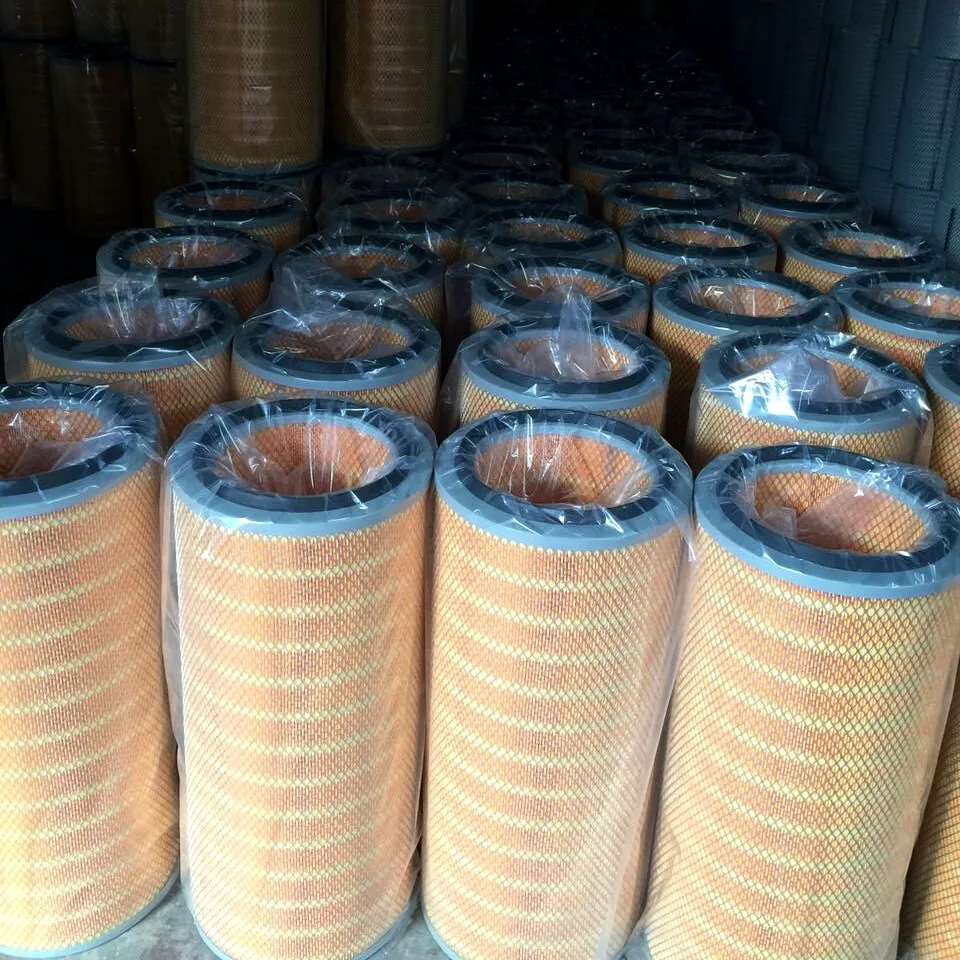 Tel:
+8615930870079
Tel:
+8615930870079
Nov . 21, 2024 19:39 Back to list
dust collector pleated filter
The Importance of Dust Collector Pleated Filters in Industrial Applications
Dust collection systems play a critical role in maintaining clean air quality in various industrial settings. Among the various components of these systems, pleated filters stand out as an essential element for effective dust management. Their design, efficiency, and versatility make them an outstanding choice for industries looking to improve air quality and comply with environmental regulations.
What Are Pleated Filters?
Pleated filters are designed with a series of folds, or pleats, which increase the surface area of the filter material without occupying additional space. This unique structure allows for higher filtration efficiency and improved dust holding capacity compared to conventional flat filters. The pleating leads to a more extended contact area, permitting the filter to capture finer particles, which is vital for protecting both equipment and personnel in an industrial environment.
Advantages of Pleated Filters
1. Higher Efficiency One of the primary benefits of pleated filters is their high filtration efficiency. They can effectively capture airborne particles, including dust, smoke, and harmful pollutants. This capability not only protects industrial equipment from wear and tear caused by dust accumulation but also ensures a safer working environment.
2. Longer Lifespan The design of pleated filters allows for greater dust holding capacity. This means that they can operate efficiently for more extended periods before needing replacement. Consequently, businesses can reduce downtime and maintenance costs associated with frequent filter changes.
3. Space-Saving Design Due to their high surface area relative to their volume, pleated filters require less space than traditional filters. This space-saving feature is crucial in many industrial settings where equipment layout is tight. It allows facility managers to maximize available space without compromising filtration efficiency.
dust collector pleated filter

4. Cost-Effective Solution While the initial investment in pleated filters might be slightly higher than their flat counterparts, their longer lifespan and superior performance often lead to lower overall operational costs. These filters can help reduce energy consumption as well, given that they require less airflow to achieve the same level of efficiency, leading to savings in electricity costs.
Applications of Dust Collector Pleated Filters
Dust collector pleated filters are widely used in various industries, including woodworking, pharmaceuticals, food processing, and metalworking. In woodworking shops, for instance, they capture wood dust, contributing to a healthier workplace and compliance with safety regulations. In pharmaceutical manufacturing, pleated filters help maintain strict cleanliness and reduce contamination risks, ensuring product safety and integrity.
Maintenance and Replacement
To maintain optimal performance, regular inspection and cleaning of pleated filters are necessary. Unlike traditional filters that may need frequent replacement, pleated filters can often be cleaned and reused, extending their lifespan. Maintenance protocols typically involve checking for accumulated dust and ensuring that the filters remain functional. Depending on the severity of dust exposure and the specific conditions of the facility, replacement might be needed every several months to a year.
Conclusion
In summary, dust collector pleated filters are an integral component of modern industrial dust management systems. Their efficiency, longevity, and space-saving attributes make them a preferred choice among industries striving for better air quality and compliance with health and safety regulations. As industries continue to prioritize environmental sustainability and employee safety, the role of pleated filters in dust collection will undoubtedly become even more prominent. By investing in high-quality pleated filters, businesses can enhance their operational efficiency, reduce costs, and contribute to a cleaner, healthier environment.
-
Types and Applications of Air Filtration CartridgesNewsJul.28,2025
-
The Role of Gas Turbine FiltersNewsJul.28,2025
-
Mastering Air Filter Cartridge UseNewsJul.28,2025
-
Advanced Turbine Filters for Modern Gas TurbinesNewsJul.28,2025
-
Cellulose Air Filter Cartridge Advantages in Dust FiltrationNewsJul.28,2025
-
Cellulose Filters for Air Particle ReductionNewsJul.28,2025

 Email:
Email:





